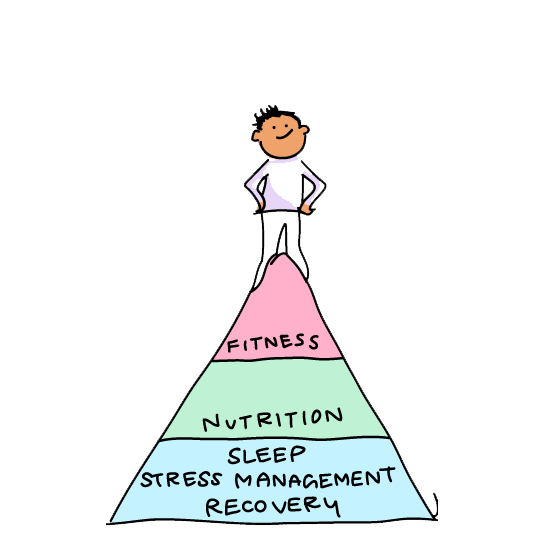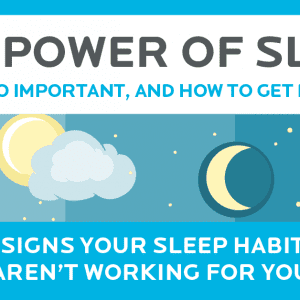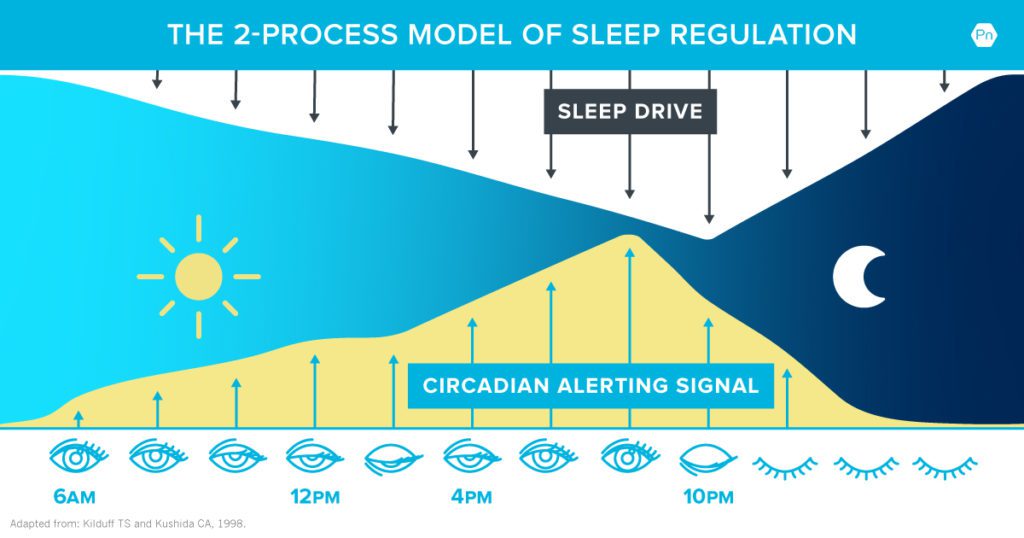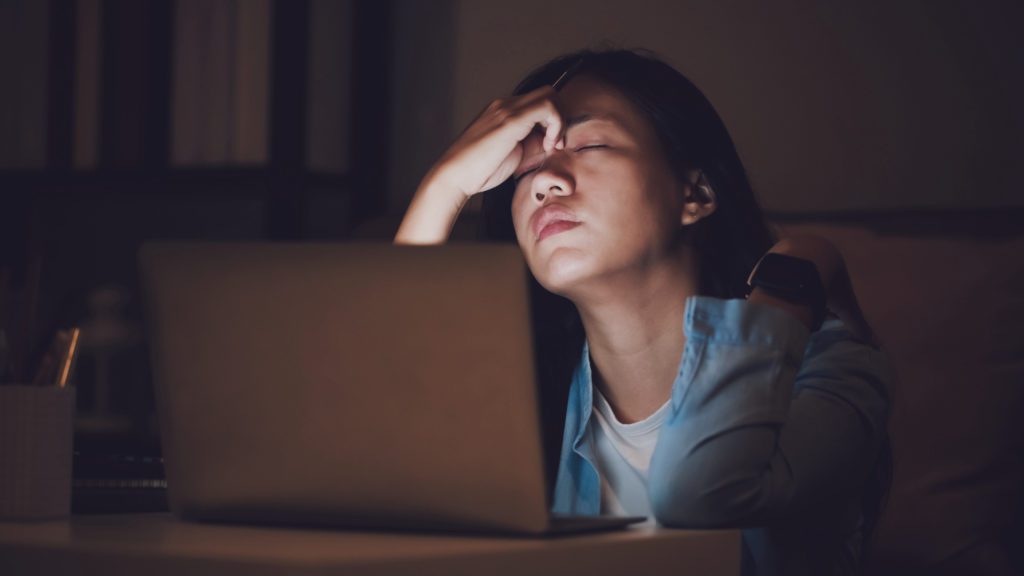Reviewed by Jennifer Martin, PhD
It’s 3:17 am, and you’re awake.
Your bedroom is a cool 65° F, and inky black thanks to your blackout blinds.
You haven’t touched caffeine since 10 am.
You meditated before bed.
And if you count one more stupid lamb, you’re going to scream.
You’ve done everything right. Why can’t you sleep?
As it turns out, good sleep hygiene (habits and routines that reduce sleep disturbances) isn’t always enough.
Meanwhile, sleep loss can become a nightmarish loop. The more nights you spend tossing and turning, the more you might:
- Associate your bed with anxiety and sleeplessness
- Sleep in, withdraw from daytime activities, and/or obsess about sleeping
- Develop a belief that you’re doomed to be a “bad sleeper”
The good news: There’s help.
You have more tools than ever to improve sleep quality.
For this story, we used insights from CBT-I, a research-supported form of cognitive behavioral therapy developed to treat insomnia.
We also worked with Dr. Jennifer Martin, sleep scientist and professor of medicine at UCLA, and Dr. Chris Winter, sleep researcher, neurologist, leading sleep expert, and author of The Sleep Solution. (They’re both contributing experts in our new Sleep, Stress Management, and Recovery Certification.)
If you’re having trouble sleeping, the following strategies have the potential to transform your sleep life.
++++
1. Train yourself to believe you can handle less-than-ideal sleep.
“I have to fall back asleep, or tomorrow is ruined.”
“I need a solid night’s sleep, or I’m going to blow my presentation.”
“If I don’t sleep well, my inflammation levels are going to skyrocket, and I’m going to get cancer.”
Sound familiar?
Frustratingly, it’s often your thoughts that turn one bad night into a pattern of bad nights.
When you worry, your body becomes alert and vigilant. This state of physiological arousal interferes with sleep, and—if it continues over time—you may even begin to define yourself as “a bad sleeper.”
Often, the best approach isn’t medication, supplements, or even some otherwise great sleep hygiene.
Rather, it’s addressing the underlying thoughts and emotions.
Build the skill: Reframe your thoughts.
Write down the thoughts or beliefs that come up when you don’t sleep well.
For example:
- I’ll never sleep well again.
- I can’t work out / think clearly / be in a good mood because I’m so tired.
- My bad sleep is going to cause me to get some terrible illness, like cancer or heart disease.
Notice how worried thoughts tend to:
- Use absolutes (like “always” or “never”)
- Predict the future (even though you’re not a licensed fortune-teller)
- See things as “all-or-nothing” (“If I don’t sleep well, I can’t do ANYTHING.”)
Now, reframe those beliefs using a nuanced perspective.
For example:
- I might lose sleep occasionally, but other nights will probably be okay.
- I’m not feeling my best, but I can do some exercise / work and maybe find a few moments of joy in my day.
- Sleep is just one aspect of good health. If I don’t sleep well, I can still make sure I eat nutritious foods, drink enough water, and maybe get outside for a few deep breaths.
Compassion in particular can activate your calming nervous system. Imagine: all those people, just like you, staring at the ceiling. Send them some imaginary kindness for their suffering, and mentally reassure them that they’ll be okay too.
Consider also what a growth mindset about sleep might look like. Nobody is doomed to be a “bad sleeper” forever.
For example:
- I’m frustrated right now, but I believe in my ability to find solutions if I keep exploring.
- It feels like I’ve tried all the strategies, but I wonder if there are things I could practice more consistently? Maybe someone can give me some feedback and coaching here.
Knowing a bit about sleep physiology can also be comforting.
For example:
- You probably drift into light sleep without realizing it. Ever caught someone snoozing during a movie, and when you called them on it, they swore they were awake?
- Your brain will eventually make you sleep. Often, even if it doesn’t FEEL like you’ve slept, you probably have. And although some nights you may sleep less, over time, your body will generally fall into a pattern of sleeping at least 5-6 hours a night.
With a little trust in your body, and some intentional reframing of your thoughts, you can train yourself to go from feeling like crappy sleep is a disaster, to feeling like it’s about as devastating as finding a small hole in your underwear.
Not ideal, but you’ll get over it.
2. Have a consistent sleep-wake schedule.
Informal poll:
Who loves a good sleep-in to catch up on extra winks?
[Everyone raises a hand.]
We’re with you. However, delaying your wake time or hastening your bedtime can lead to problems long term.
That’s because oversleeping can reduce your sleep drive.
Your sleep drive is a biological hunger for sleep that accumulates while you’re awake. When you sleep in, you delay that hunger… which is why you might still be wide awake at 2 am the following night.
(To learn more about sleep drive, read: The science of sleep.)
The solution? Spend only as much time in bed as you need (for most adults, that’s 7-9 hours) and stick to the regular sleep-wake programming, even on weekends when you could lounge in bed until noon.
Build the skill: Find a sleep schedule that works for YOU (and stick to it).
Different people have different cycles of sleep and wakefulness.
You may know this as being either an “early bird” or a “night owl.”
(This inclination to sleep and wake during particular phases of a 24-hour cycle is also called chronotype.)
Check in:
- If your energy is highest in the mornings, and you’re often the first one to leave a party (yawning), you’re probably an “early bird.”
- If your energy is higher later in the day, and you have a mug that says, “But first, coffee,” you’re probably a “night owl.”
Once you understand your individual patterns, you can try to work with them—waking when you’re more likely to feel energetic and going to bed when you’re more likely to feel sleepy—rather than fight them.
See if you can shift your schedule (as much as you can control) to wake and sleep at a time that feels more natural YOUR body. As a result, you may find you fall asleep—and wake up—more easily.
This table shows some sample schedules, based on chronotype:
| Wake time | Pre-bed ritual starts | Sleep time | |
|---|---|---|---|
| Early bird (or early-morning job requirements) | 5:30 AM | 8:30-9 PM | 9:30 PM |
| Middle of the road (or average 9-5er) | 7:30 AM | 10:30-11:00 PM | 11:30 PM |
| Night owl (or late-starting work requirements) | 10 AM | 1:00-1:30 AM | 2 AM |
Depending on work and/or home obligations, you may not be able to start your day at 10:30 am even if that’s what’s ideal for your body.
So, work with what you’ve got. Can you shift your sleep/wake time by an hour? Half an hour? Great. Even small changes can help.
Stick to your new schedule consistently.
Waking up at the same time, even on weekends and off days, is a well-established way to create a strong sleep cycle.
To do this, you can set a bedtime alarm to go off 30-60 minutes before your scheduled bedtime to remind you to start relaxing.
Of course, you can also use an alarm if you feel like you can’t trust yourself to wake at a certain time, but many people find when they discover a schedule that works, they naturally wake when they want.
3. Create a safe sleep space.
Sleep is a period of time when your defenses are down.
You’re less able to react to danger, whether that’s someone stealing your wallet or Sharpie-ing a mustache on your face.
That’s why, to sleep, you need to feel safe.
Anything that disturbs that sense of safety can trigger hypervigilance—a constantly elevated state of scanning your environment for potential threats, closely connected to anger and anxiety.1 This includes conflict with your bedmate, feeling overloaded at work, or that swirling anxiety triggered by the nightly news.
And, as you can imagine, being in a constant state of surveillance isn’t great for sleep.
In situations like post-traumatic stress disorder (PTSD), many people even fear sleep, which may come with nightmares, or the fear of being attacked while one isn’t conscious.2,3,4
(Note: Treating conditions like clinical anxiety or PTSD requires the care of a specialist and is beyond the scope of this article.)
Build the skill: Feel safe and secure.
This thought exercise can help you come up with creative solutions that lead to a sense of being cocooned, calm, and connected.
Here’s the general idea:
Imagine you live in a place called Great Sleep Town.
The main attraction of this town: Everyone who lives there gets consistent, excellent sleep. Plus, in each home, you can control all aspects of the environment to optimize sleep, including lighting, decor, noise, bedding, and movement of people.
You also have all the money and resources in the world. Think: Engineers, community mediators, sleep scientists, architects, interior decorators, psychologists, couples counsellors, massage therapists, and yogis.
Remember, you have full control, so get creative!
Use these questions to get started:
- How do you think Great Sleep Town created such a strong sleep culture? What supports do citizens have that allow them to feel safe and calm when they “power down”?
- How do residents spend their days? And with whom?
- What environmental features does a home in Great Sleep Town have? Specifically, what features do the bedrooms have that facilitate such good sleep?
Of course, not all of the things you dream up will be readily accessible to you—or even invented yet. However, your answers might give you some insights into small things you could change.
What you need for better sleep will be specific to your life, but here’s what’s worked for some of our clients:
- Buying some really soft sheets
- Installing an alarm system and improved door locks
- Having something for white noise, or wearing ear plugs
- Decluttering your bedroom, so it feels peaceful and “zen”
- Planning one small moment of pleasure or relaxation for the next day to look forward to
- Resolving that argument with your spouse/friend/mother
- Leaving the TV and some lights on so potential intruders know that someone’s home
- Sleeping with your big, protective dog
Note: While this experiment can reveal some helpful changes, if you’re experiencing significant distress over your sleep, consider working with a therapist to directly treat the underlying fears and traumas that might be causing you to feel unsettled.
Sleep is a skill, not an identity.
This article is by no means a comprehensive guide to solving all sleep problems. If your struggles with sleep are persistent or severe, consult with your doctor.
However:
Whatever your sleep is like now, know that you can change.
As Dr. Winter says:
“Sleep is a skill, not a trait. If you have a good coach, you can get better.”
Keep practicing good sleep hygiene, trust in your body’s ability to sleep, and dig up Mr. Snufflesworth—your comforting childhood stuffie—if you need to.
We hope to see you in Great Sleep Town.
References
Click here to view the information sources referenced in this article.
If you’re a health and fitness pro…
When your clients are stressed and exhausted, everything else becomes a struggle: going to the gym, choosing healthy foods, and managing cravings.
But with the right tools, you can help your clients overcome obstacles like chronic stress and poor sleep—leading them toward the lasting health transformations they’ve always wanted.
PN’s Level 1 Sleep, Stress Management, and Recovery (SSR) Coaching Certification will give you these tools. And it’ll give you confidence and credibility as a specialized coach who can solve the biggest problems blocking any clients’ progress. (You can join the SSR Early Access List for our biggest discount + exclusive perks.)




Share